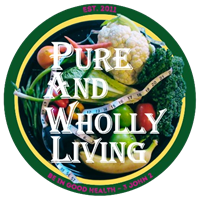 You’ll find it in supposedly “less toxic” (but more expensive) deodorant…it’s an ingredient that most don’t recognize: carrageenan. It’s not an easy word to pronounce, and sure sounds like it doesn’t belong in or on the body.
You’ll find it in supposedly “less toxic” (but more expensive) deodorant…it’s an ingredient that most don’t recognize: carrageenan. It’s not an easy word to pronounce, and sure sounds like it doesn’t belong in or on the body.
Turns out, carrageenan has attracted the attention of other label-reading, health-conscious folk. The ingredient, an additive derived from red algae, has gained some negative press and warranted a bit of investigation. Here’s the scoop:
Carrageenan 101
Used primarily as a thickener and stabilizer—meaning it helps retain form and flavoring—carrageenan can be found in many processed foods and products. It is especially prevalent in boxed non-dairy milks like almond and coconut milk, so those who are lactose-intolerant, follow a Paleo diet, or choose not to eat dairy are exposed to higher levels of the product.
Alternative health specialists, including Dr. Andrew Weil, claim that the ingredient is toxic to the body, specifically causing inflammation, which can lead to cancer, heart disease, and even Alzheimer’s, among other negative health results.
The Research
A multitude of studies have been done on carrageenan in the past several years, but the work of Dr. Joanne K. Tobacman is most publicly documented. Dr.Tobacman has been studying carrageenan’s effects on laboratory animals for over a decade, and shr was the first to alert the media of its potential dangers when added to food. In her study, she found that exposure to degraded (not approved for use in food products) and undegraded (approved for use in food products) carrageenan was associated with intestinal ulcerations and neoplasms, or abnormal tissue growths in the body that are often characteristic of cancer.
On top of that, the Cornucopia Institute reports that the body recognizes the unique chemical structure of carrageenan as a dangerous invader, causing an immune response that leads to inflammation. Chronic inflammation is a precursor for multiple diseases, and can trigger severe gastrointestinal issues.
Although the current research is thorough, many argue that there are some problems with the data Tobacman has presented. First, the studies are being conducted on animals, which have very different biological makeups than humans. Second, the tests were administered via water rather food, which in turn changes the effects on the body. When carrageenan is being consumed in almond milk, for instance, the proteins and other nutrients change the way it is absorbed and digested. Finally, the amount of carrageenan given in the tests far exceeded the normal amounts found in foods and other products.
Should You Cut Carrageenan?
Now that carrageenan is on your radar, should you boycott your beloved boxed almond milk or yogurt? That’s a personal question, and the answer involves bio-individuality, the concept that what is right for one person won’t be right for everyone. As with everything else in the world of holistic health and nutrition, we all have to become our own researchers.
In general, my advice is to choose foods that are as simple and whole as possible, and to pay attention to how you feel when you consume them. Some people experience stomach discomfort and digestive issues immediately after consuming carrageenan, and others will have no reaction at all, while still others develop symptoms over time. Making your own almond milk, which is easy and affordable, is a great way to avoid consuming additives like carrageenan—plus it tastes much better!
Have you had experiences, negative or otherwise, with carrageenan? Share them in the comments below!
Adapted
